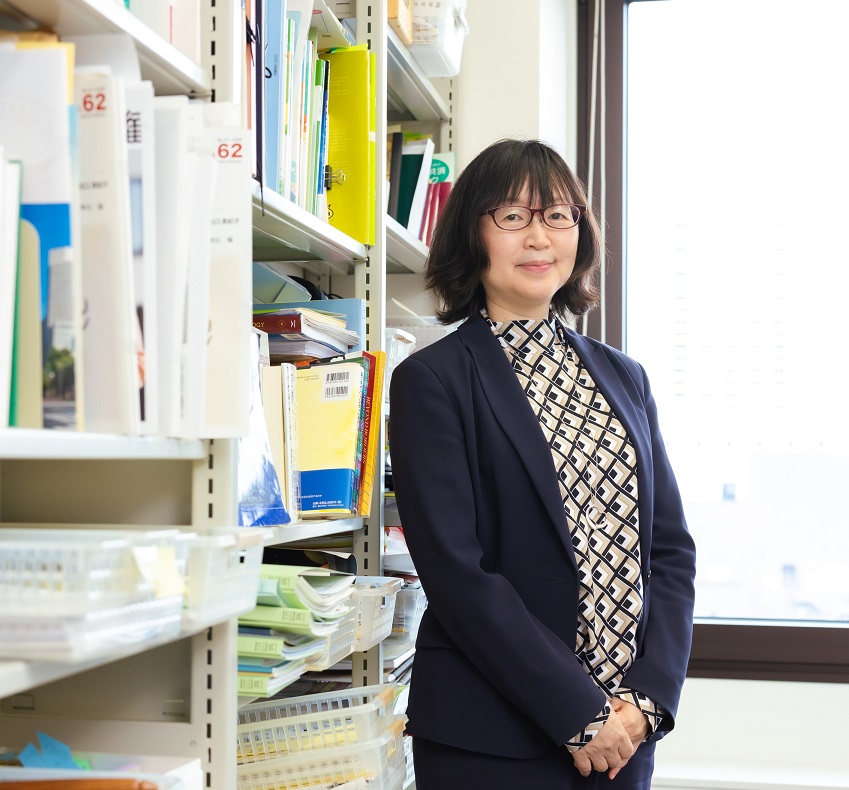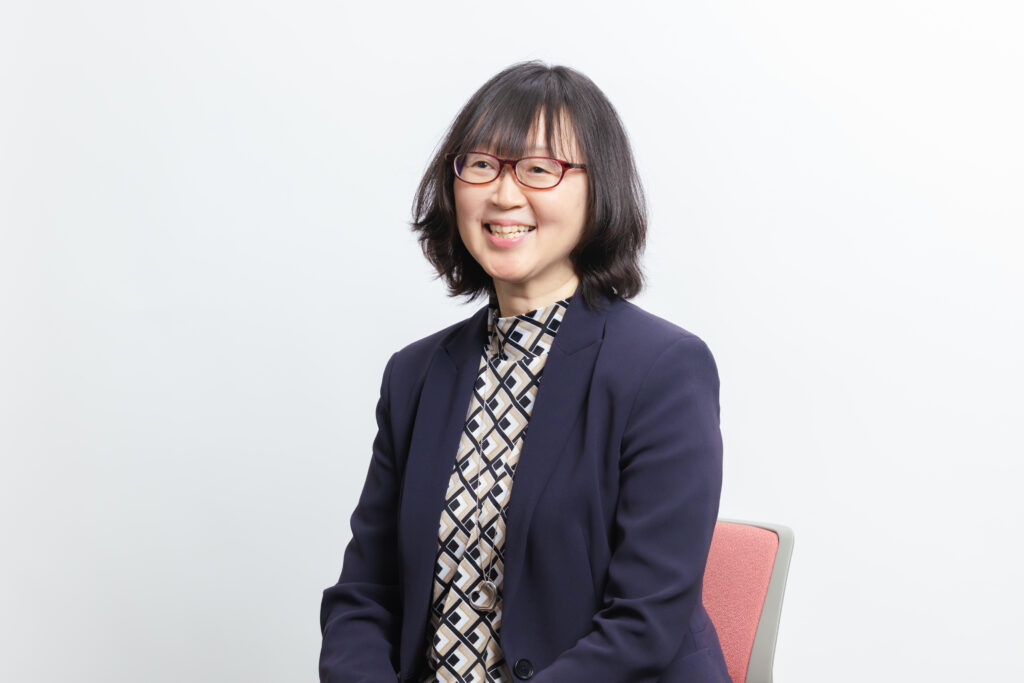
Professor Makiko Deguchi from the Faculty of Foreign Studies specializes in cultural psychology and psychology of discrimination. She researches in the psychological processes of privileged group members who become allies to minority groups. She is interested in developing a scale to measure dominant group privilege and is working to create a Japanese privilege attitude scale.
Cultural psychology is a field within psychology that examines the mutual interaction between culture and human thought, behavior, and affect.
For example, how do Japanese women who were born and raised in Japan and then moved to the U.S. in adulthood narrate their acculturation process after several decades? How did they negotiate their various identities? Having lived outside of Japan as a child myself and going back and forth between Japan and the U.S., such research has helped me gain great insight into my own intercultural journey.
Members of dominant groups are often unaware of and are indifferent to discrimination

In my research, I investigate how members of dominant groups—those who hold power in society— come to be aware of their privilege and understand discrimination as not someone else’s issue but as their own issue.
Privilege is defined as unearned advantages that are automatically afforded to those who belong to a dominant social group. Race/ethnicity, social class, gender identity, sexual orientation are examples of identity categories.
If you are born into an ethnically Japanese family in Japan, then you hold “Japanese privilege,” which includes not having to face racial discrimination in Japan, and not being told “If you don’t like it here, why don’t you just go back to where you came from?” when you criticize the Japanese government.
If you were born as a cisgender woman, then you are afforded cisgender privilege which includes not having to worry about being stared at or harassed when using a public bathroom. I believe that it is difficult to address discrimination and to change systemic oppression unless those on the side of privilege first face and acknowledge the unearned advantages they have in the current system.
An automatic sliding door is an excellent metaphor for the mechanism of how privilege works. Those who are in the dominant group experience life as a series of doors that continue to open for them automatically so that they can move forward without structural barriers. Because they are able to walk through the doors easily, they don’t notice the presence of the doors, nor the fact that they open for them.
However, those with minority identities must pry open the door on their own, without assistance. And no matter how hard they try, the door may remain closed. Discrimination is thus a structural issue than an individual one.
Hoping to make more people aware of privilege and change social structures
The first step toward eliminating structural discrimination is for people in the majority to be aware of their invisible privileges. Unless we realize how automatically advantaged we are within the current social structure, and how these advantages allow us not to face discrimination and microaggressions on a daily basis, we tend to see ourselves as a product of our own effort.
This leads people to blame marginalized people for their own victimization. We fall into the false sense of security that discrimination is something that other “bad” people do, and that the issue is irrelevant to them because they consciously do not discriminate against others. However, failing to take action when a discriminatory structure is in place is the same as helping to perpetuate discrimination.
I am currently working on the development of a Japanese privilege scale. It has 52 items, including legal and language privileges automatically given to Japanese people. To establish it as a valid psychological measure, we are collecting data to verify its validity and reliability.
The next step is to develop a Japanese privilege attitude scale so that we can study how people feel about their privileges as well as the attitudes and behaviors they adopt once they become aware of their privilege.
To eliminate discrimination and to become true allies, members of dominant groups need to realize that they must undergo internal transformation. Undergoing such a process allows us to become more aware of minority voices and to be able to translate that into social action. Going forward, I plan to continue both research and education to achieve a more just society.
The book I recommend
“The Book Thief”
by Markus Zusak, Random House

This beautiful novel, narrated from the standpoint of the Grim Reaper, is about the life of a young Jewish girl who lost her family, who is taken in by a couple during the cruel and oppressive Nazi regime in Germany. It is an extraordinary moving story about love, loss, trauma, courage, and resilience.
-
Makiko Deguchi
- Professor
Department of English Studies
Faculty of Foreign Studies
- Professor
-
Professor Makiko Deguchi obtained her Ph.D. in Cultural Psychology after completing the doctoral program in psychology at the Graduate School of the Morrissey College of Arts and Sciences of Boston College in the U.S. After teaching in the Psychology Department at St. Lawrence University in Canton, New York, she began teaching at the Department of English Studies, Faculty of Foreign Studies, Sophia University since 2012.
- Department of English Studies
Interviewed: May 2022